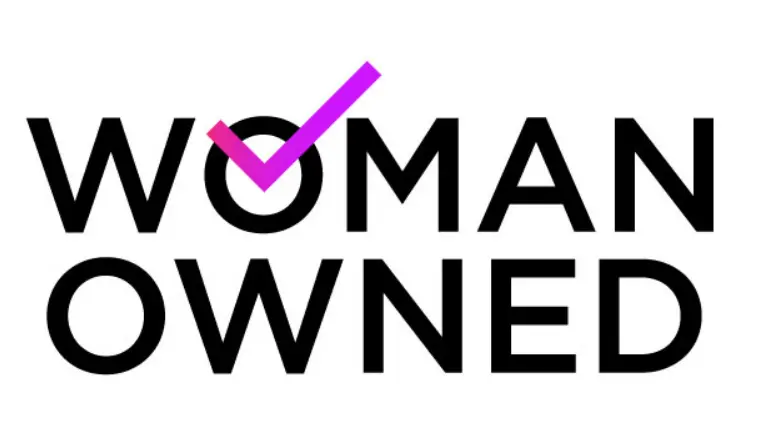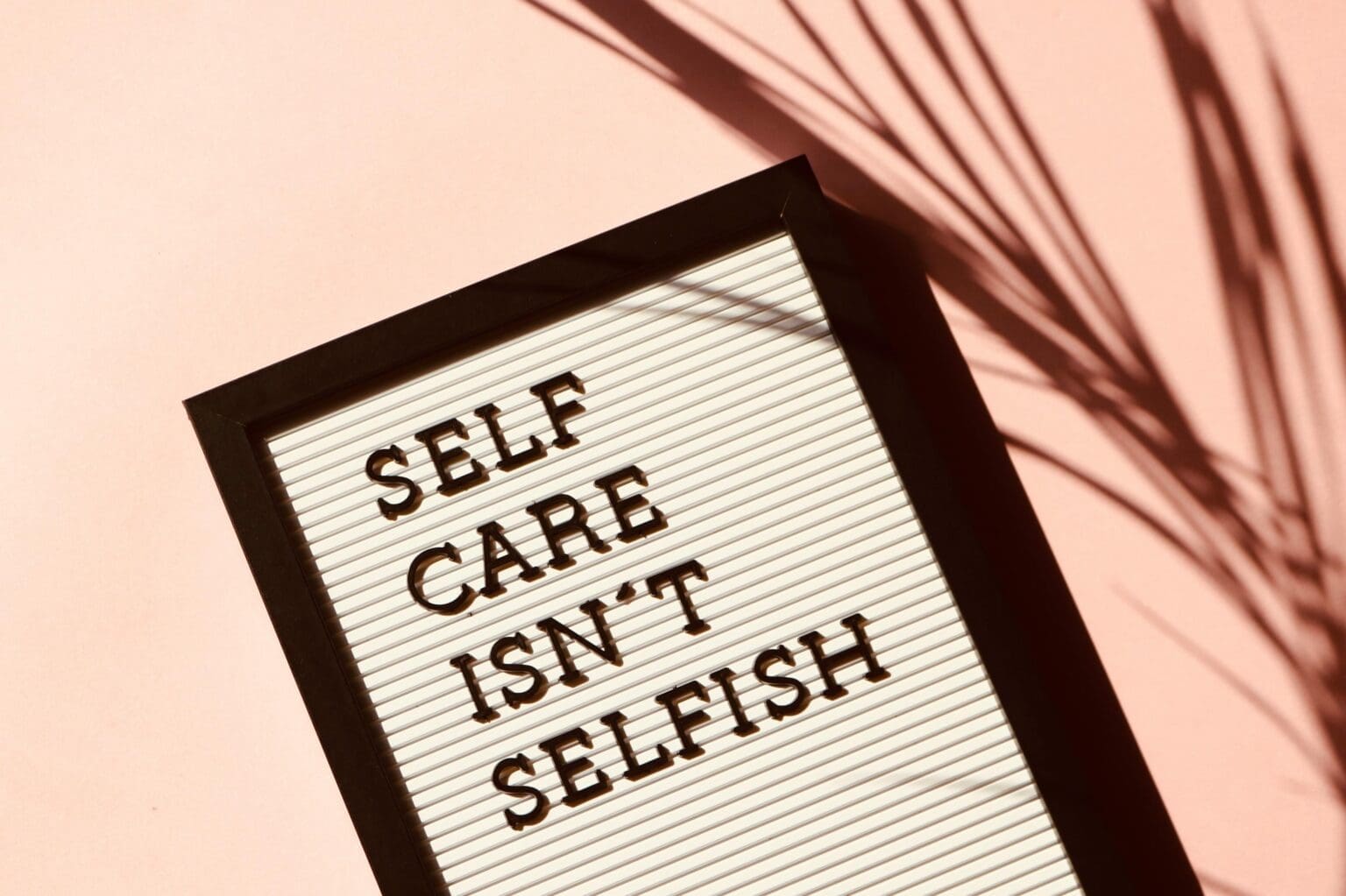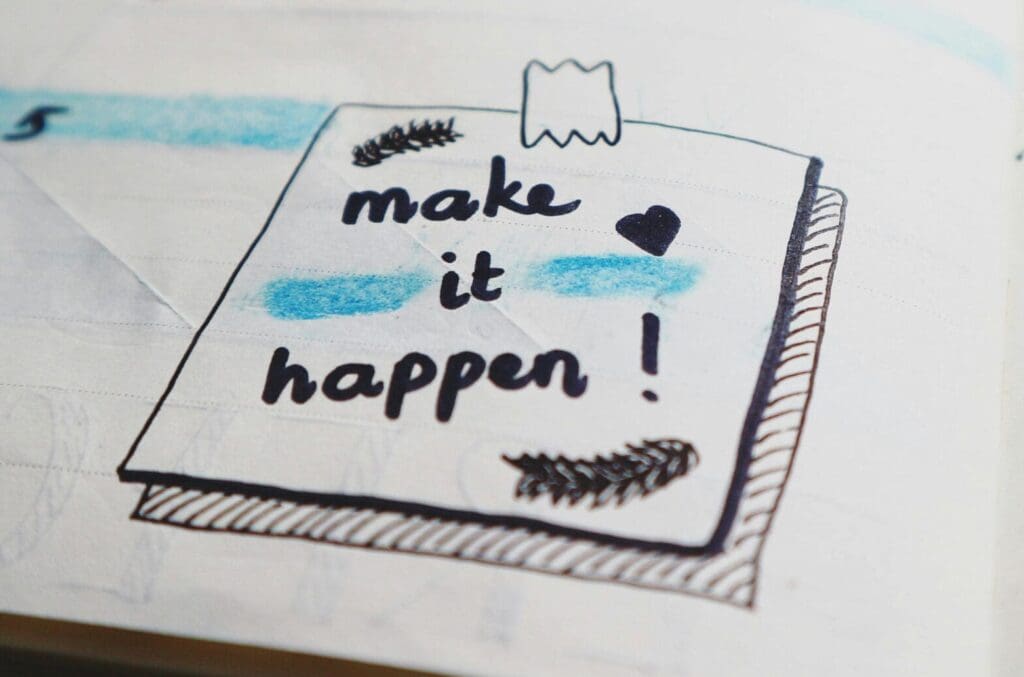The following books provide support for individuals seeking resources on how to develop self-care habits. These books provide outlines and tools for readers to use when they are first learning how to incorporate self-care practices into their daily lives.
****
The ABCs of Self-Care By Sherri E. Betts
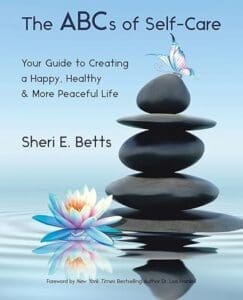
The ABCs of Self-Care by Sherri E. Betts presents a framework for personal wellness using an alphabetical approach. The book methodically explores 26 self-care concepts, one for each letter of the alphabet. Each concept offers a strategy for incorporating these practices into daily life.
Betts emphasizes that effective self-care requires a balanced approach across physical, mental, and emotional dimensions. The book promotes sustainable habits that foster long-term well-being. Betts encourages her readers to personalize their self-care routines based on individual needs and circumstances, reinforcing that self-care is not selfish but essential for maintaining healthy relationships.
Why Is This Book Helpful?
This book is helpful because it breaks down self-care into manageable, alphabetized concepts that readers can easily remember and implement. By providing research-backed strategies across physical, mental, and emotional dimensions, Betts offers a practical roadmap for those looking to develop sustainable wellness habits rather than quick fixes.
Inner F*cking Peace Journal: Transcend Your Bullsh*t and Be Happy By Cynthia Scher
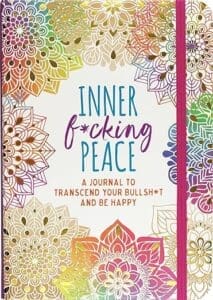
Cynthia Scher’s Inner F*cking Peace Journal offers a candid approach to mindfulness and emotional wellness. This journal-style guide addresses the psychological barriers that prevent genuine contentment. Scher also provides thought-provoking prompts and exercises designed to help readers identify self-sabotaging patterns, challenge negative thought cycles, and develop practical strategies for emotional regulation. The journal format encourages active participation, requiring readers to document their experiences and insights throughout the process. Scher’s approach is particularly effective for individuals who appreciate direct communication and are ready to take meaningful action toward emotional well-being.
Why Is This Book Helpful?
This book is helpful because the journal format actively engages readers in their own healing process, providing prompts that facilitate self-discovery and meaningful change. Scher’s balanced approach of tough love and compassion creates a safe space for confronting difficult emotions while offering actionable strategies to overcome self-sabotaging patterns.
This Book Is A Safe Space By Amy Tran
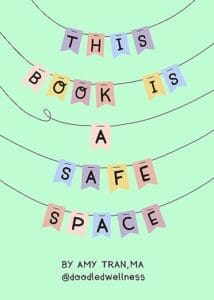
Amy Tran’s, This Book Is A Safe Space, offers readers a literary sanctuary designed to promote emotional healing and self-discovery. The book creates an environment of unconditional acceptance through thoughtfully crafted chapters that address various aspects of personal vulnerability and growth. Tran combines gentle guidance with exercises that encourage readers to explore difficult emotions, past traumas, and limiting beliefs within the book’s framework. The author’s approach acknowledges that healing is non-linear, emphasizing progress over perfection and self-compassion over self-criticism.
Why Is This Book Helpful?
This book is helpful because it creates a judgment-free environment where readers can explore difficult emotions and experiences at their own pace. Tran’s compassionate approach provides both emotional support and exercises for processing trauma, developing self-compassion, and establishing healthy boundaries. The book serves as both a trusted companion during vulnerable moments and a practical guide for transferring the concept of emotional safety from the page into the reader’s everyday lives.
The Wounded Healer: A Journey in Radical Self-Love By Andy Chaleff
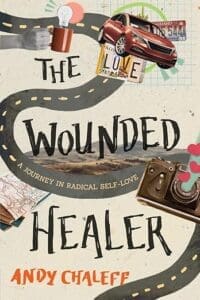
In The Wounded Healer, Andy Chaleff presents a compelling narrative that explores how personal suffering can be transformed into a powerful catalyst for healing others. Chaleff uses his personal experiences with trauma and loss to create a framework for self-love that acknowledges pain as an essential element of the human experience rather than something to be avoided. The author guides readers through steps for practicing vulnerability, emotional processing, and developing self-compassion while challenging conventional perspectives on strength and weakness.
Why Is This Book Helpful?
This book is helpful because it reframes personal suffering as a source of strength and wisdom rather than something to overcome or hide. Chaleff’s sharing of his own healing journey provides both inspiration and guidance for readers facing their own wounds. By demonstrating how embracing vulnerability leads to deeper connections, the book offers a perspective that empowers readers to practice self-acceptance while developing their capacity to support healing in their communities.
